Key figures in Brooklyn’s Real Estate, Design and Workforce sectors met to delve into the future of work in Downtown Brooklyn and how to foster a creative ecosystem.
Industry leaders from Brooklyn’s real estate, design, and workforce sectors recently gathered at the Ace Hotel Brooklyn for the Make It in Brooklyn Breakfast, organized by the Downtown Brooklyn Partnership (DBP). With over 60 professionals in attendance, the event delved into the future of work in Downtown Brooklyn, fostering a creative ecosystem and facilitating improved talent and job access.
Regina Myer, President of DBP offered opening remarks to kick off the event, highlighting a promising recovery of pre-pandemic jobs in Downtown Brooklyn, particularly in the tech and creative sectors. Key sub-sectors, including Software Publishers, Motion Picture & Video Industries, and Architecture & Engineering, demonstrated robust growth and high concentration, contributing to 40% of the area’s private sector job growth since 2012. However, despite this growth, the post-pandemic landscape has seen a decline in demand for office space both nationally and locally, prompting DBP to bring together industry leaders on sharing success stories and ideas for adapting to the evolving needs of emerging industries.
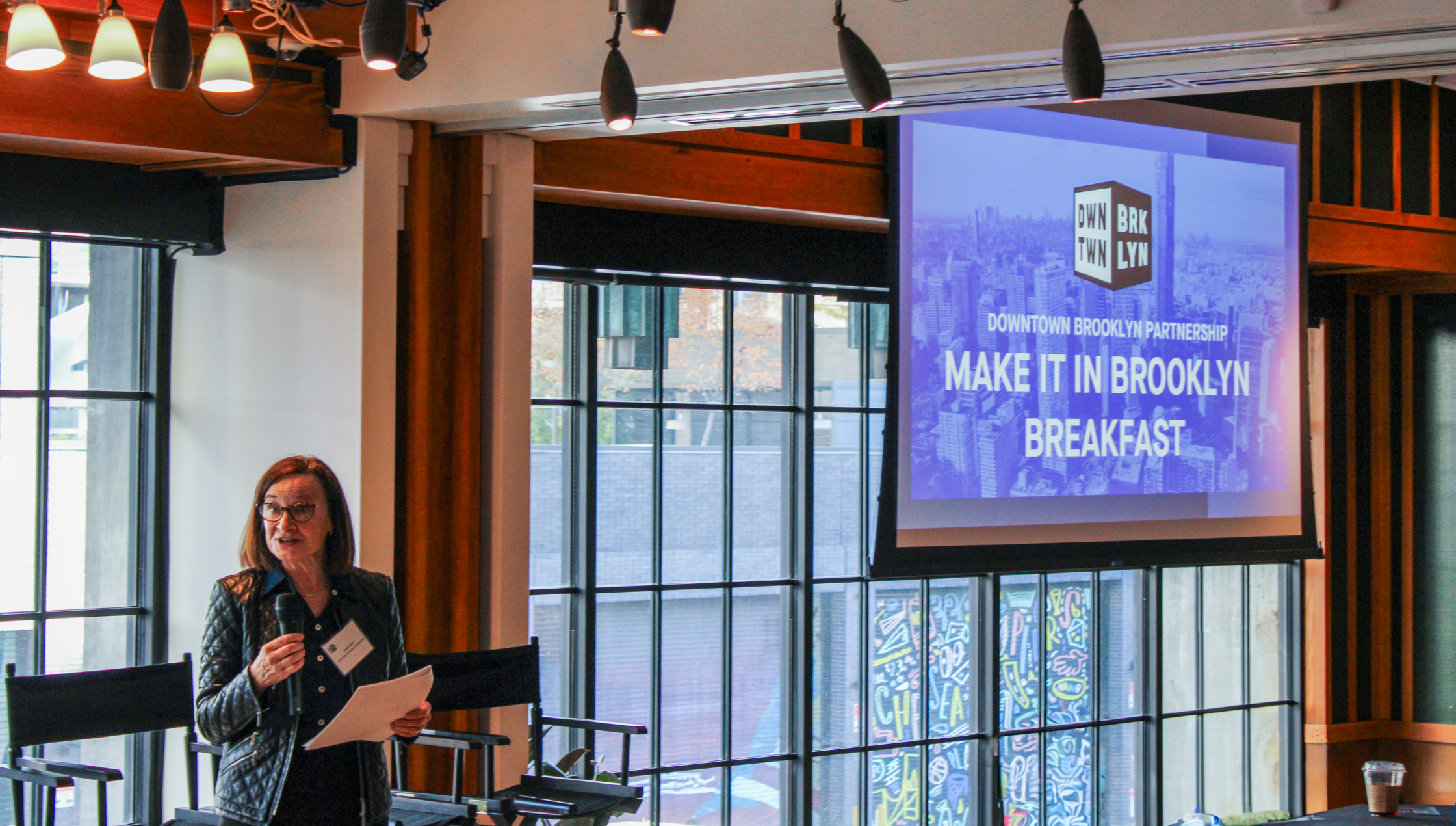
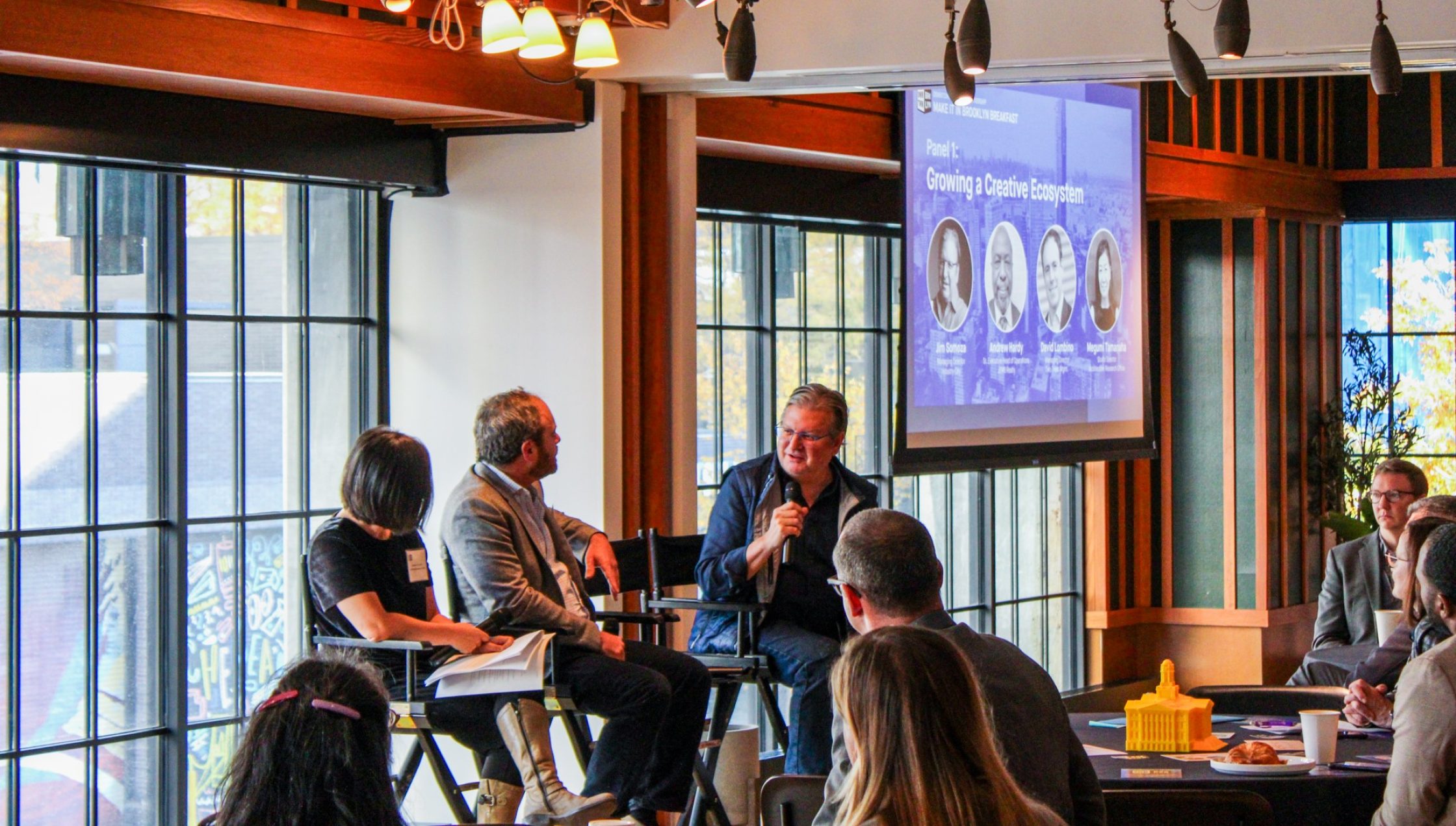
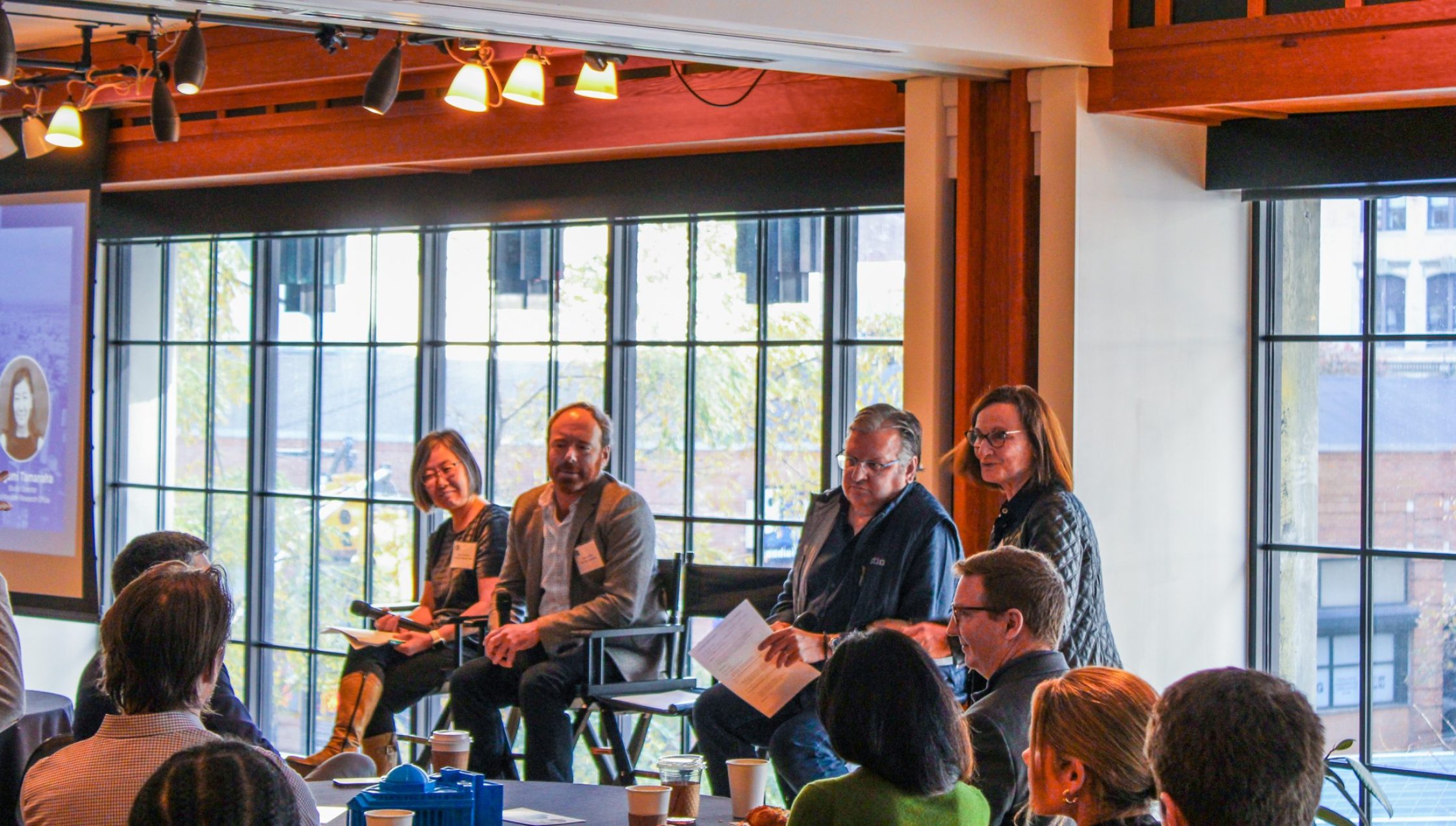
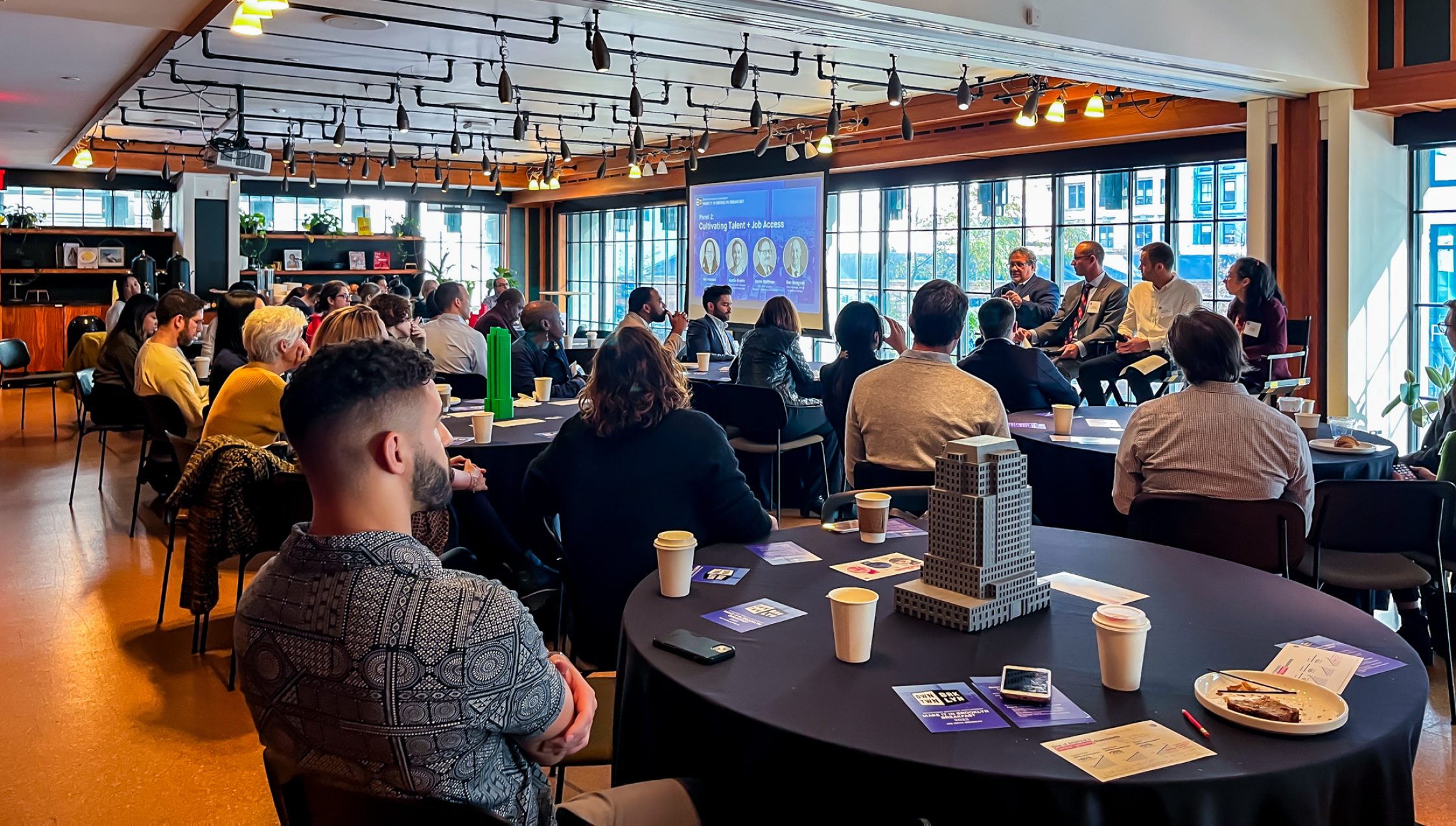
The first panel delved into strategies for attracting the next generation of office users, moderated by Jim Somoza of Industry City, with panelists David Lombino of Two Trees Management and Megumi Tamanaha of Architecture Research Office (ARO). The real estate reps highlighted the shift in tenant preferences, noting the popularity of smaller spaces near residential neighborhoods, like DUMBO and Downtown Brooklyn, and the necessity for high quality amenities. Additionally, there is an emphasis on the importance of flexibility in lease terms for small, non-credit tenants. ARO, who recently moved to Downtown Brooklyn from Manhattan, emphasized the role design plays in making a space feel unique and comfortable, and the advantages of being able to custom design a raw space to suit a company’s unique needs.
The second panel focused on workforce development and talent access. Moderated by Kei Hayashi of BJH Advisors, the panel featured Austin Evarts of NYU Urban Future Lab, Aaron Shiffman of Brooklyn Workforce Innovations, and Dan Bengyak of Brightcore Energy. Easily accessible locations are key in attracting and retaining talent, as are collaborations with academic institutions like City Tech and NYU. Filling skills gaps through partnerships with local educational institutions can provide necessary training, while introductions, events, and collaborations best serve to boost startup success. The panelists, many working in the climate tech sector, used Local Law 97 as a policy example that can drive public and private sector collaboration to address workforce needs and drive business development and job creation.
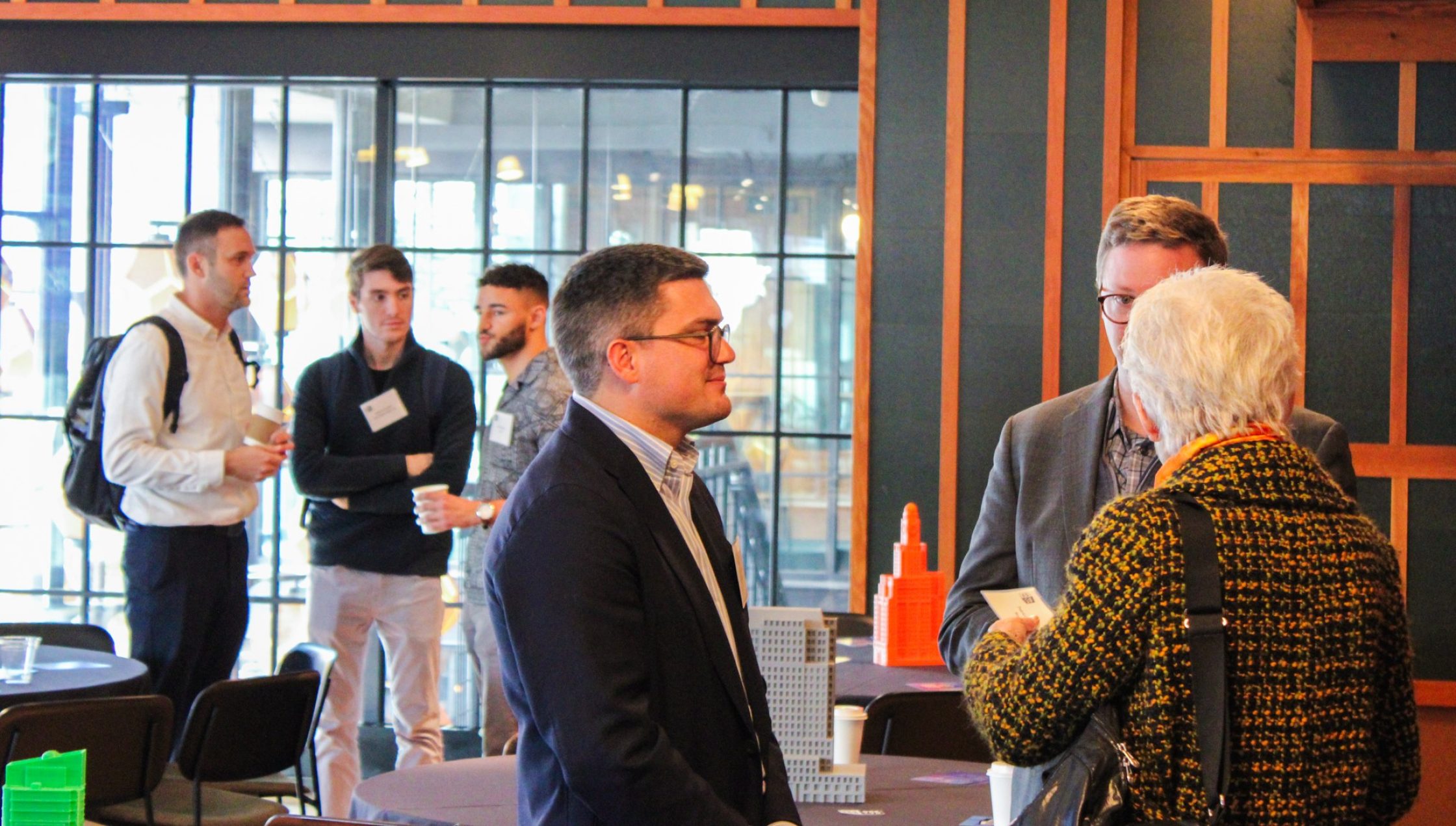
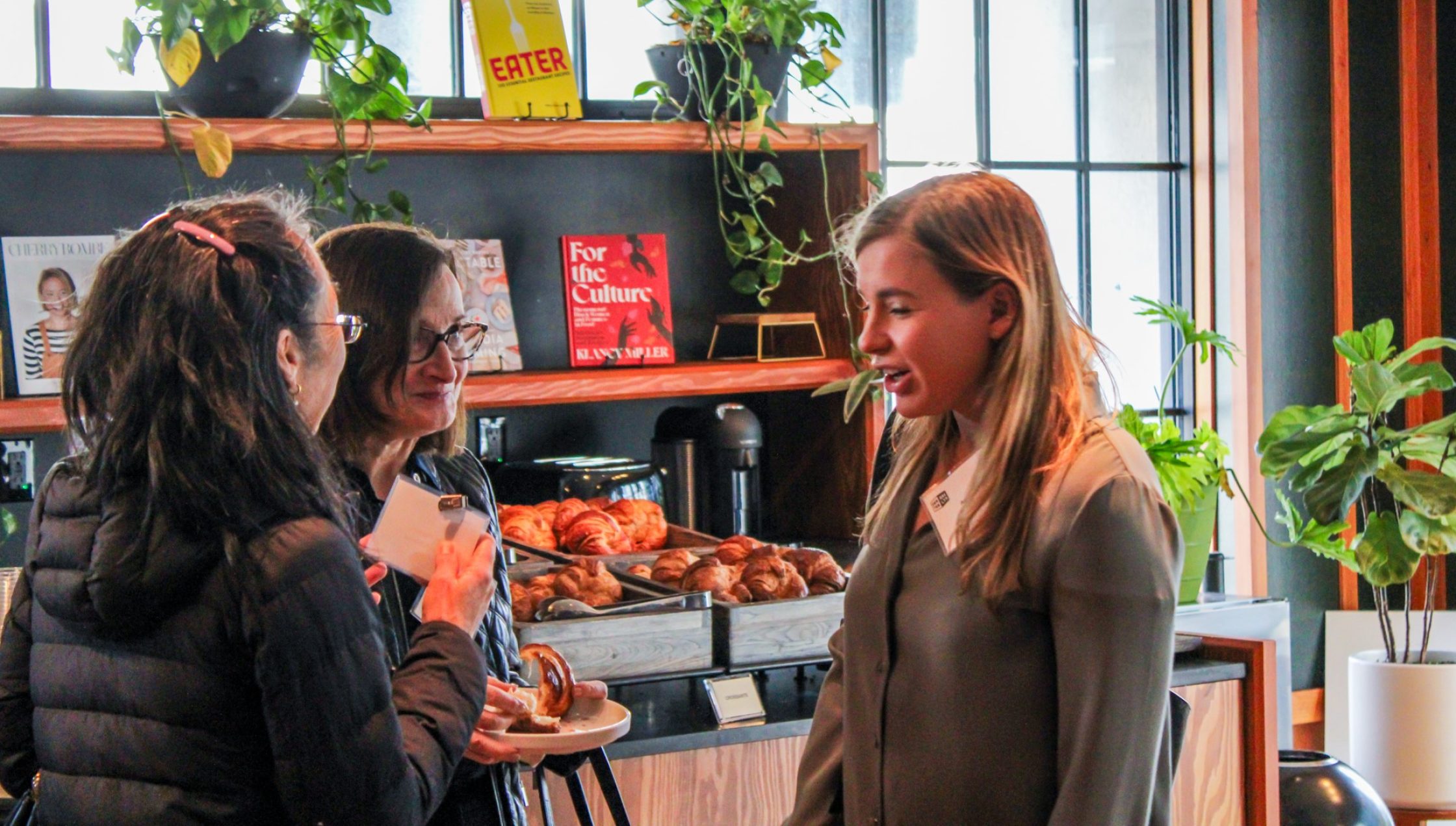
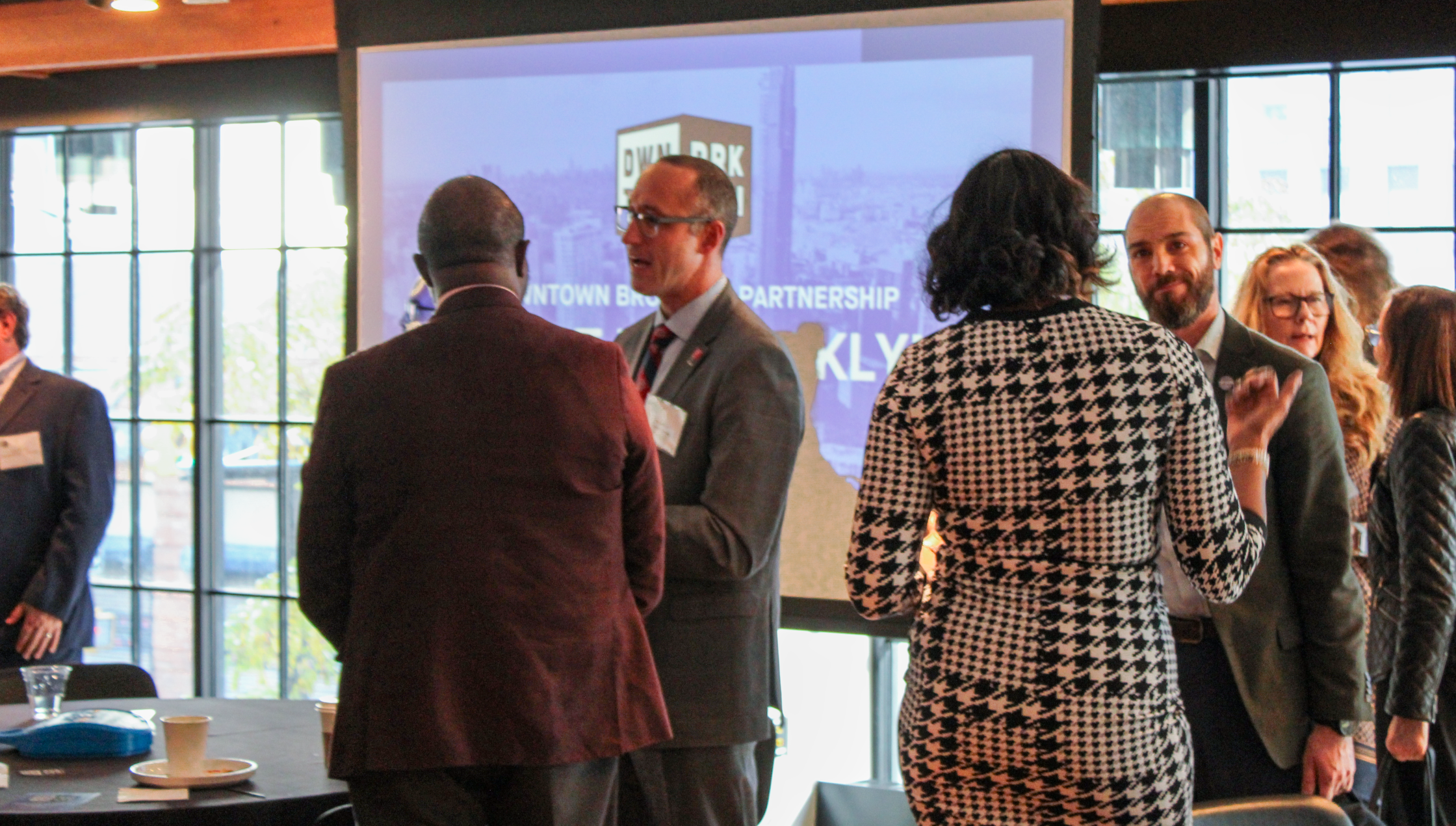
The Make It in Brooklyn Breakfast served as a platform for diverse industry leaders to share insights on shaping Downtown Brooklyn’s future work landscape. As the borough continues to evolve, partnerships and collaborations are vital for fostering innovation and sustaining economic growth.

